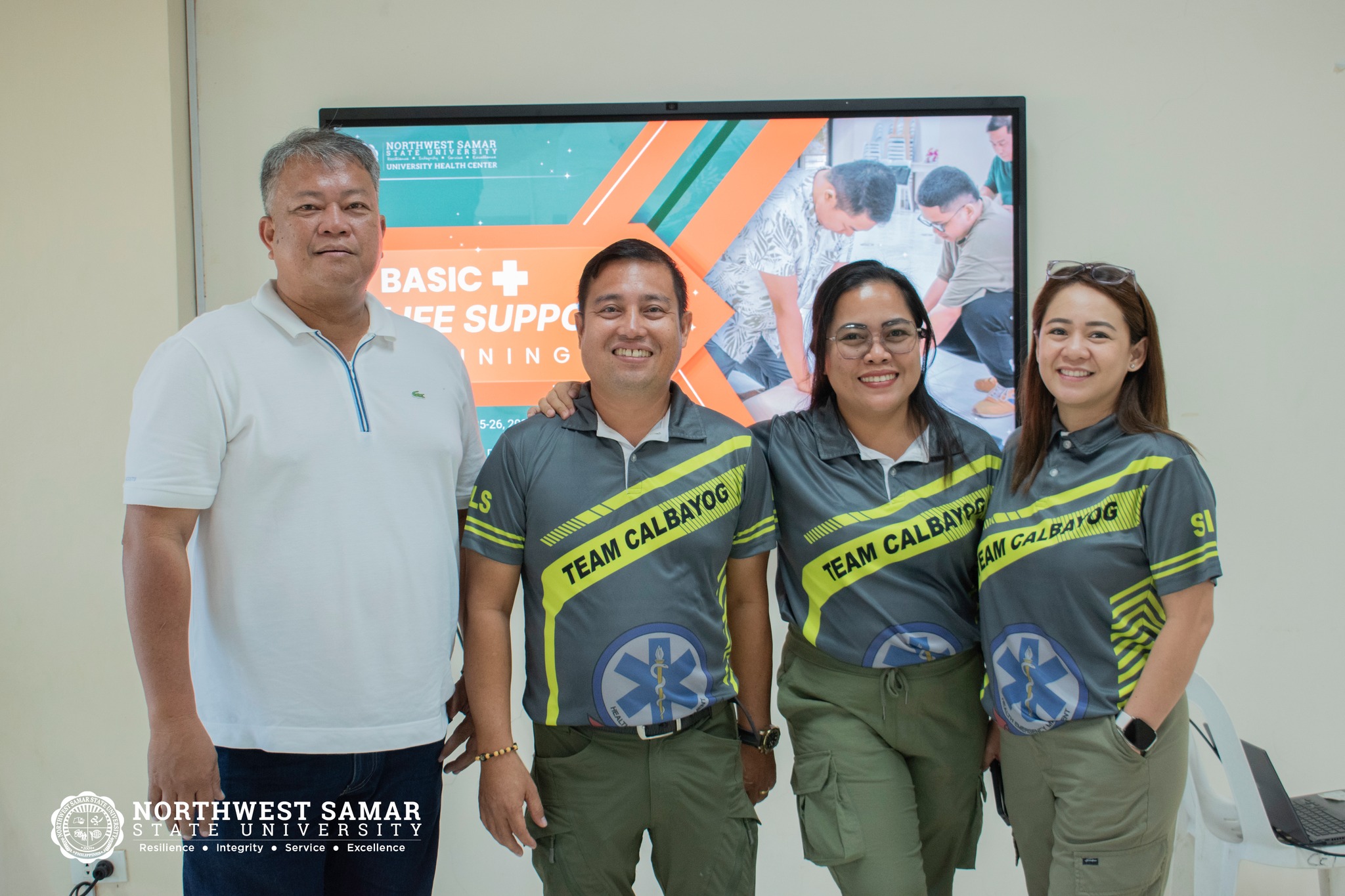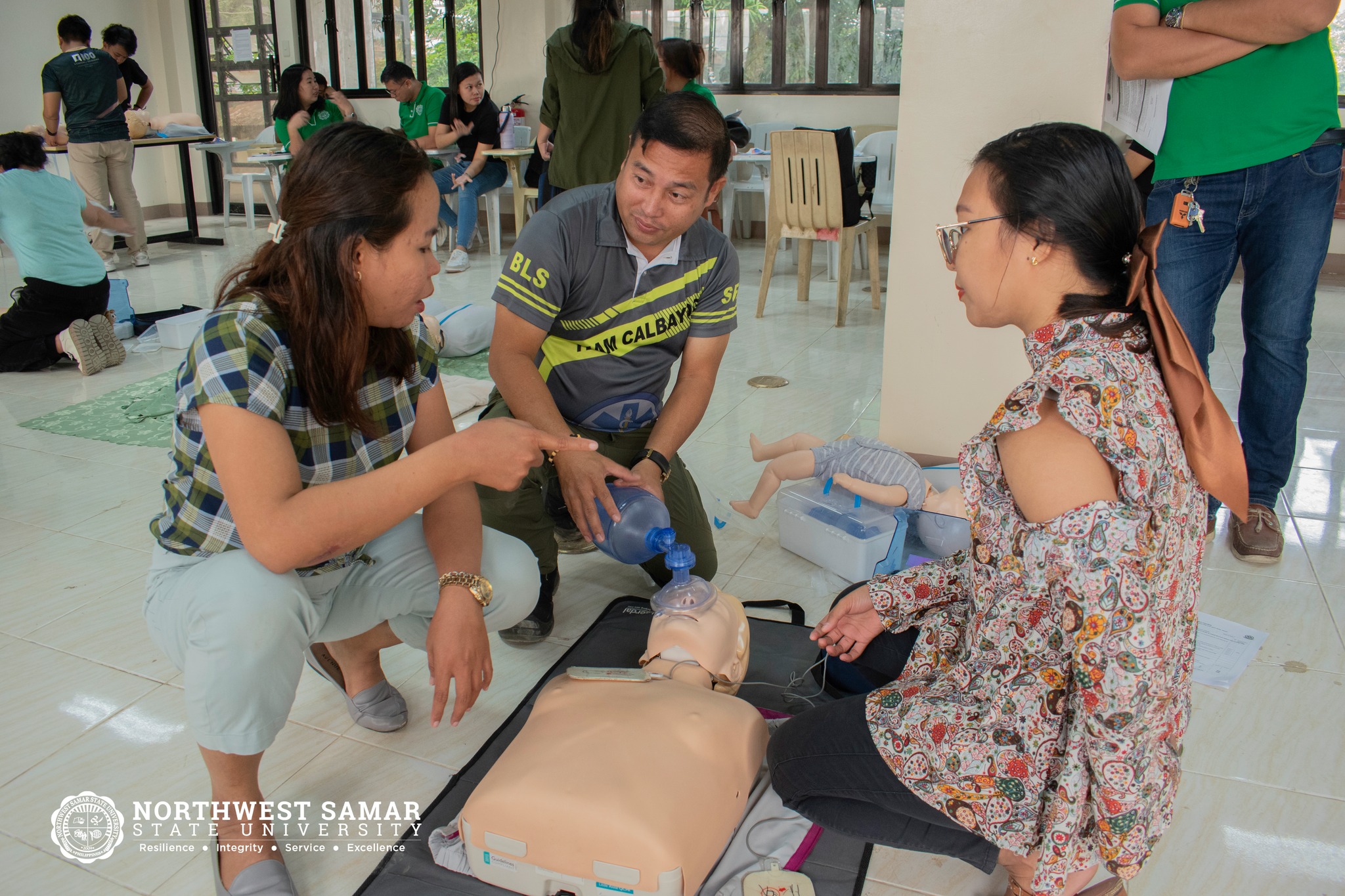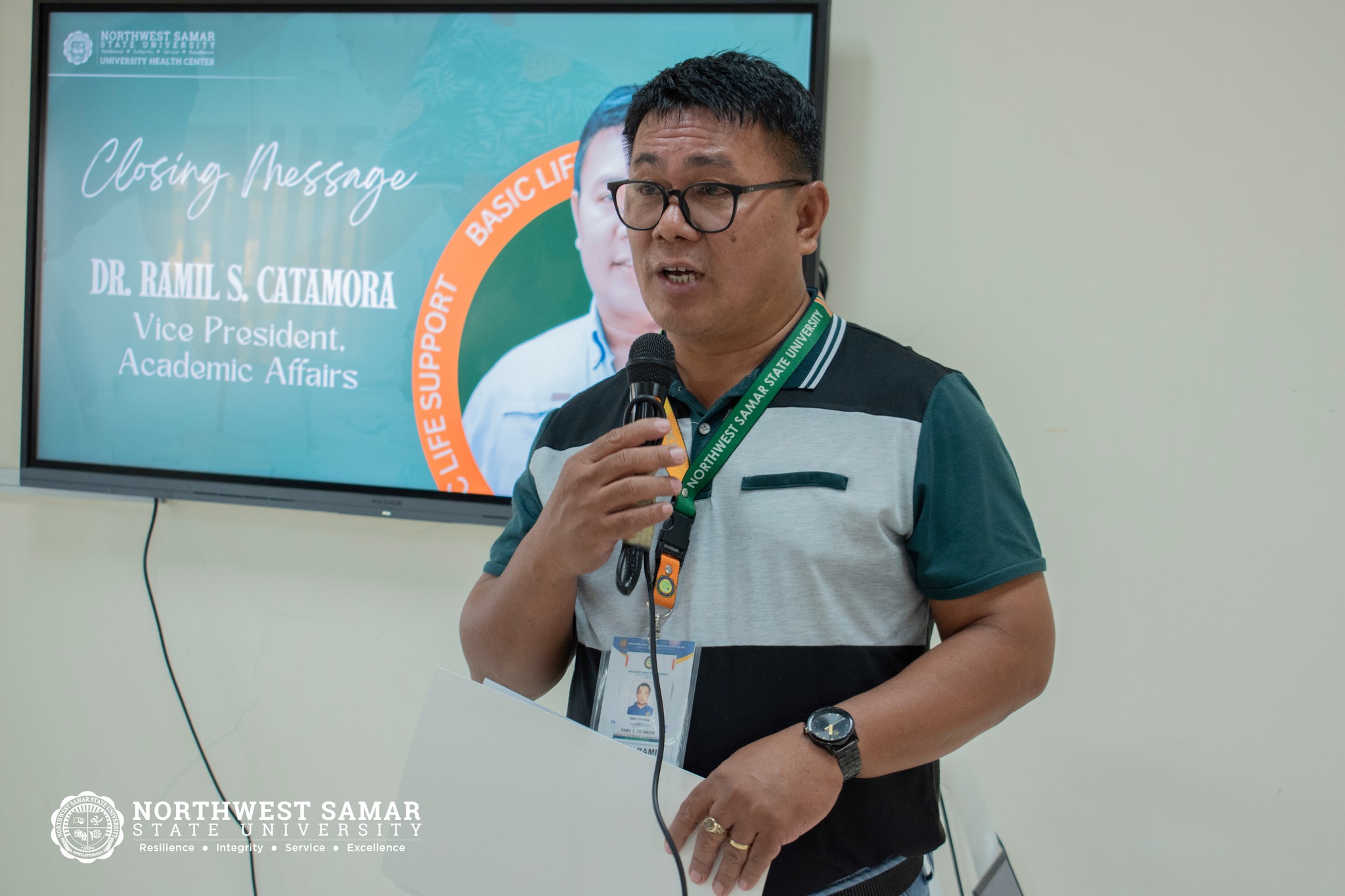Posted on by Joseph Renor Obrino
Post Views: 201

Sponsored by the University Health Center in coordination with the Calbayog City Health Office, Northwest Samar State University promotes community health and safety by organizing a two-day Basic Life Support (BLS) Training for its teaching and non-teaching personnel held on November 25-26, 2024, at the CCIS Multimedia Room.
The training, aligned with the Health Emergency Management Bureau’s vision of “Kaligtasang pang-Kalusugan sa Kalamidad sa Kamay ng Komunidad” (5K), aimed to equip participants with the essential knowledge and skills to respond effectively to emergencies. Participants were trained in various aspects of BLS, including: Principles of Emergency Care, Introduction to Basic Life Support, Cardiopulmonary Resuscitation (CPR), Automated External Defibrillator (AED), Respiratory Arrest and Rescue Breathing, and Foreign Body Airway Obstruction.
The training program followed a comprehensive approach, starting with a pre-test to assess participants’ existing knowledge, followed by interactive discussions and demonstrations led by expert resource speakers, Mr. Joseph Von P. Catorce and Ms. Ma. Fatima Shaira D. Adona. A post-test was conducted to evaluate participants’ understanding of the concepts.

On the second day, participants practiced their newly acquired skills through return demonstrations and skills evaluations, overseen by Mr. Catorce, Ms. Adona, Dr. Sandro Daguman, and Ms. Jamaica Ultra.
The event was anchored on the legal bases of Administrative Order 155 s. 2004, Section VI, and Republic Act 10871 – the “Basic Life Support Training in Schools Act.” This training program aligns with the strategic objective of developing the capacity of the community and families to prepare for, respond to, and cope with emergencies and disasters.

“This training is very important and timely. Labi na kay this week, Intramurals na,” Dr. Ramil S. Catamora, the University Vice-President for Academic Affairs noted during his closing remarks. NwSSU’s Basic Life Support training underscores its dedication to creating a secure and healthy environment, not just within the university but also in the wider community. This initiative equips individuals to respond effectively to emergencies, ultimately contributing to a more resilient and prepared community.



